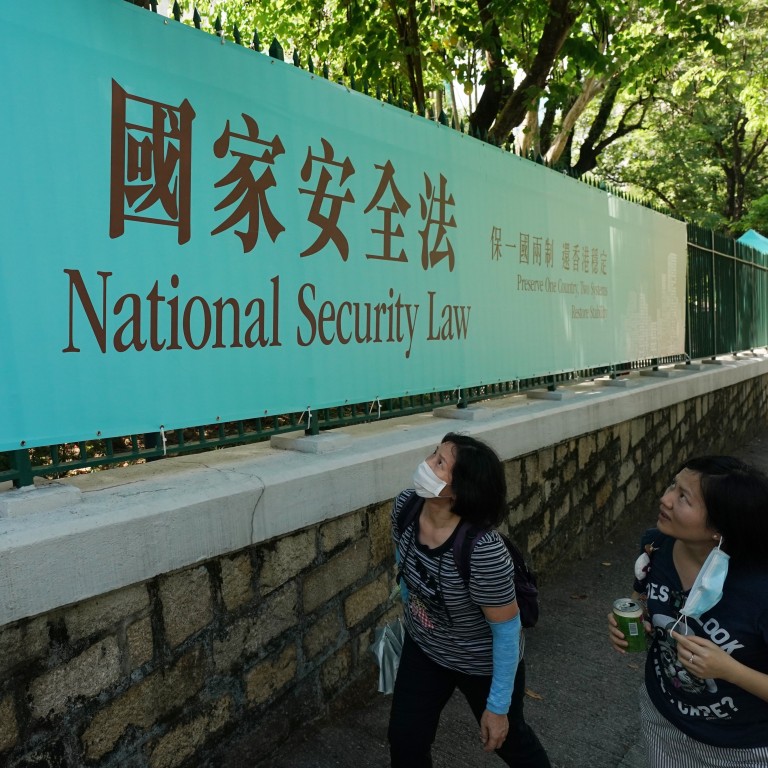
National security law: tough new reality for Hong Kong as offenders face maximum sentence of life in jail
- The four offences under the new law, adopted at 11pm on Tuesday, carry a maximum penalty of life imprisonment
- Xi Jinping signed legislation just over a month after the bill was first introduced by the central government
President Xi Jinping signed the law – criminalising the four acts of secession, subversion, terrorism and collusion with foreign and external forces to jeopardise national security – just over a month after the bill was first introduced by the central government.
Details of the new law, which sees both Beijing and the local government involved in enforcement, reveal the broad demarcation of jurisdictions, a source of much debate earlier among legal scholars.
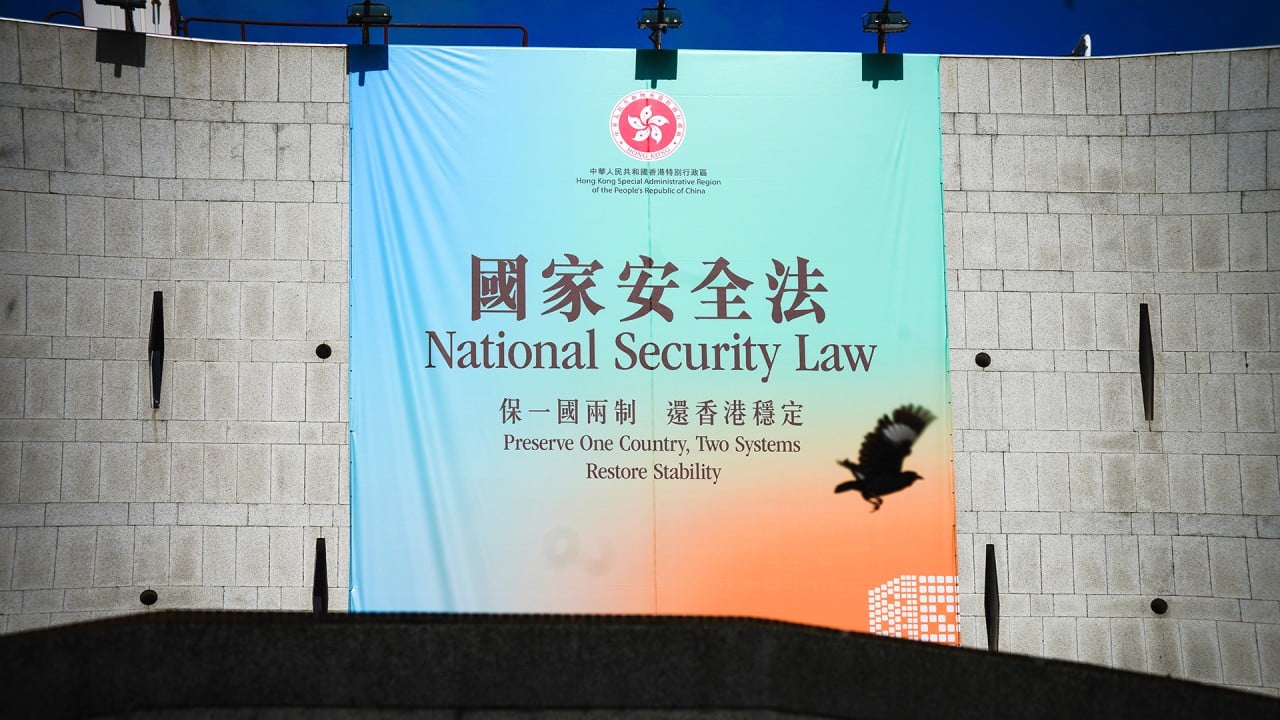
03:33
Beijing passes national security law for Hong Kong
These are serious cases that involve the “complicated situations” of interference by foreign and external forces; cases in which the Hong Kong government cannot effectively enforce the legislation; and those in which national security is under “serious and realistic threats”.
Hong Kong national security law full text
For cases over which Beijing exercises jurisdiction, the mainland agency in Hong Kong will launch investigations and the Supreme People’s Procuratorate – the state prosecutors – will assign relevant prosecution authorities to take charge of the prosecution. The Supreme People’s Court will assign relevant courts to adjudicate those cases.
Under the punishments spelt out in the new law, the four offences carry the maximum penalty of life imprisonment. Some minor offences will result in less than three years’ jail time. Companies are not exempt but may be punished with fines, and non-Hong Kong residents in breach of the law could be expelled from the city.
While Beijing described the legislation as a “sword” hanging on the heads of the few threatening national security, its passage sparked a chain reaction in the city as localist groups swiftly disbanded and pro-protester establishments took down anti-government propaganda from their premises.
Attempts at protests during the day fizzled out as only a handful showed up at various locations, while veteran activists vowed to take to the streets on Wednesday, in defiance of a ban against the traditional July 1 rally to protest against the new law.
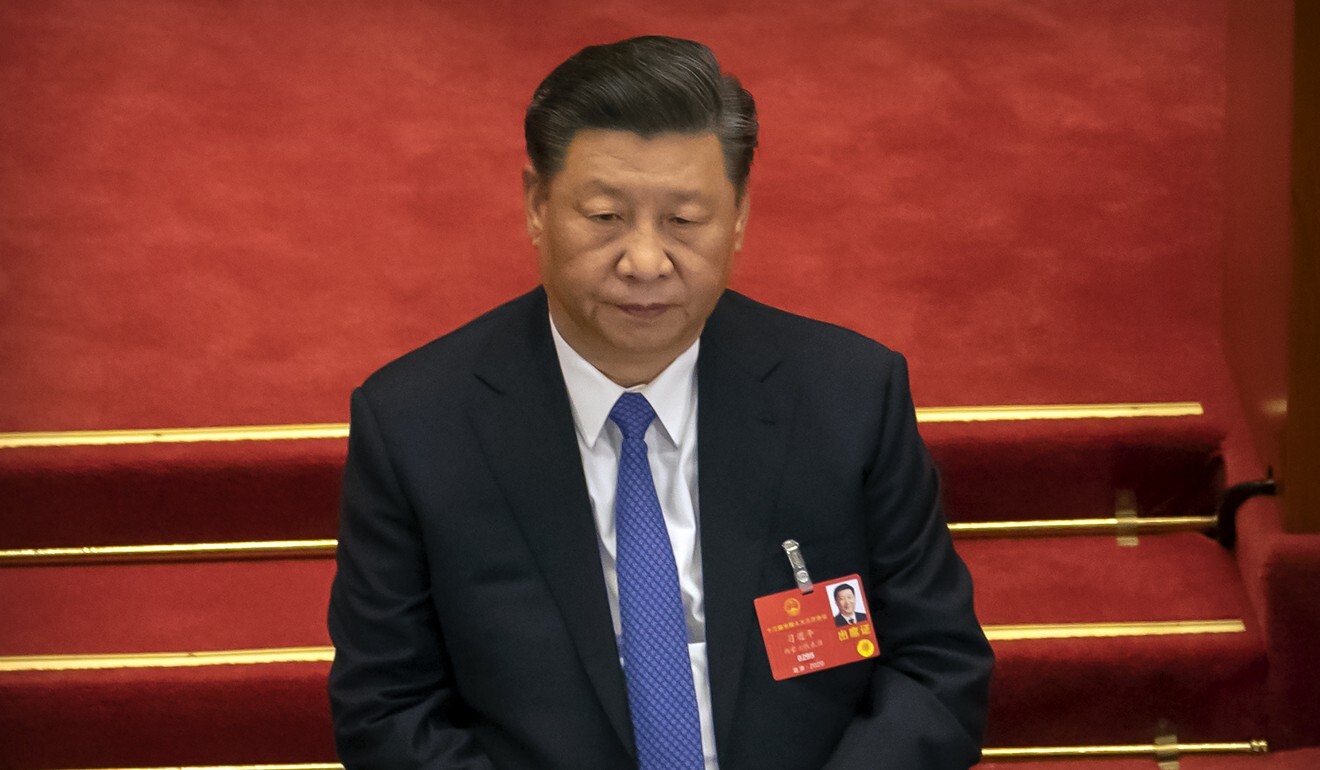
A simmering concern in the city had been whether its freedoms and rule of law would stay intact with the passage of the new legislation.
Standing committee chairman Li Zhanshu, China’s third-ranking official, was quoted by state media as saying: “The implementation of this law … will ensure that ‘one country, two systems’ can move forward in the right direction.”
As part of a series of statements issued by Xinhua in the evening, the state news agency said Li described the law, and its unanimous passage, as “a reflection of the will of compatriots of the whole nation, including Hong Kong”.
Hong Kong leader demands international respect for the national security law
“I am also encouraged by the overwhelming support of members of the public,” she said, adding that she was confident that with the law, the social unrest of the past year would be eased and stability would be restored to enable the city “to start anew”.
“This law will be a sharp sword hanging over a minority of people who endanger national security. But for most of the Hong Kong residents, as well as foreigners in the city, this law will be the guardian angel that safeguards their rights, freedom and peaceful way of living,” the office said.
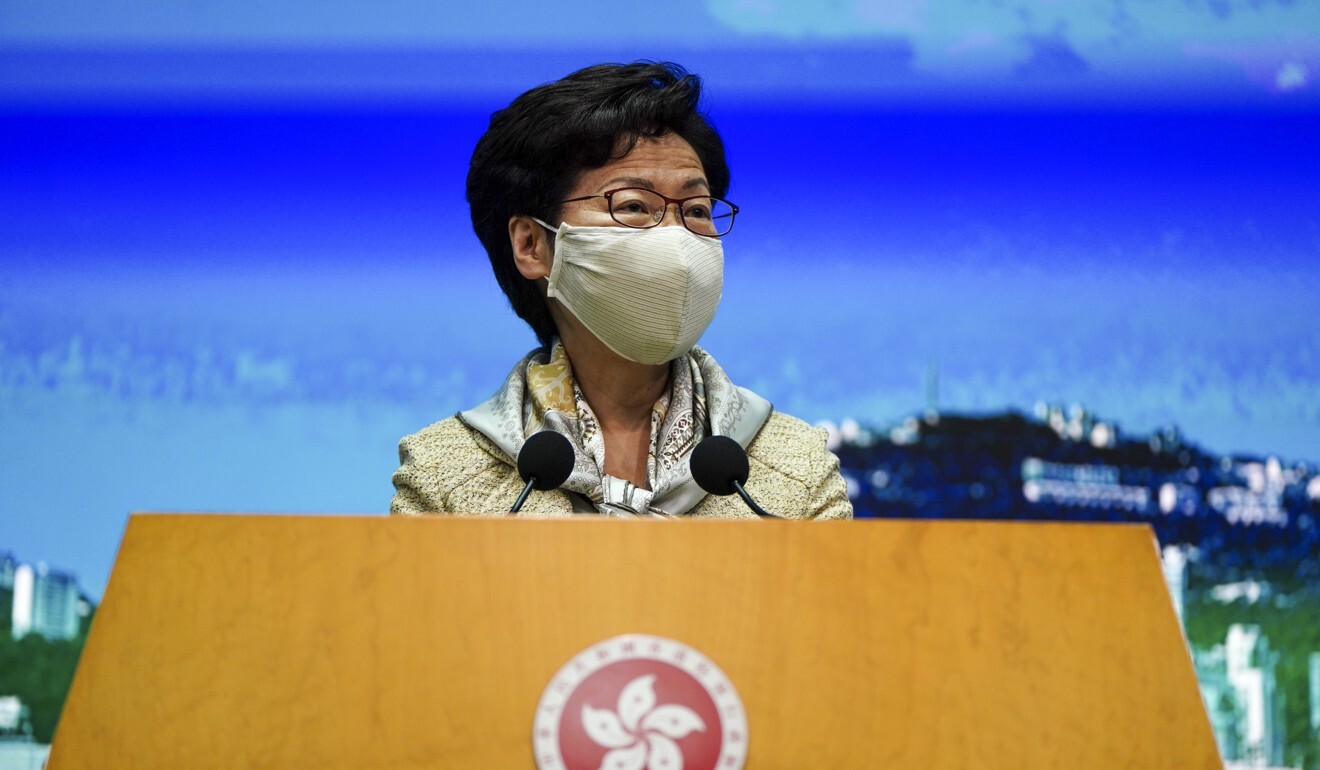
Beijing’s liaison office in Hong Kong also said the law would provide strong support for the city “to turn from chaos to stability and restart”.
“No one must underestimate the central government’s determination to safeguard national security in Hong Kong,” it added.
Sources previously revealed that the maximum penalty under the law would be life imprisonment.
Well before the statements were issued, the approval of the law cast a pall over veteran opposition politicians and activists alike, prompting at least four localist groups to shut their local branches immediately.
EU ‘deplores’ Beijing’s move to pass national security law for Hong Kong
Hong Kong National Front, Studentlocalism and Hong Kong Independence Union also closed their local branches on Tuesday. The front will continue to run its branches abroad, while the latter plans to start operations overseas.
Cheung, 41, who runs the Lung Mun Cafe chain of restaurants, announced on Facebook that his restaurant chain was no longer in the “yellow economic circle”.
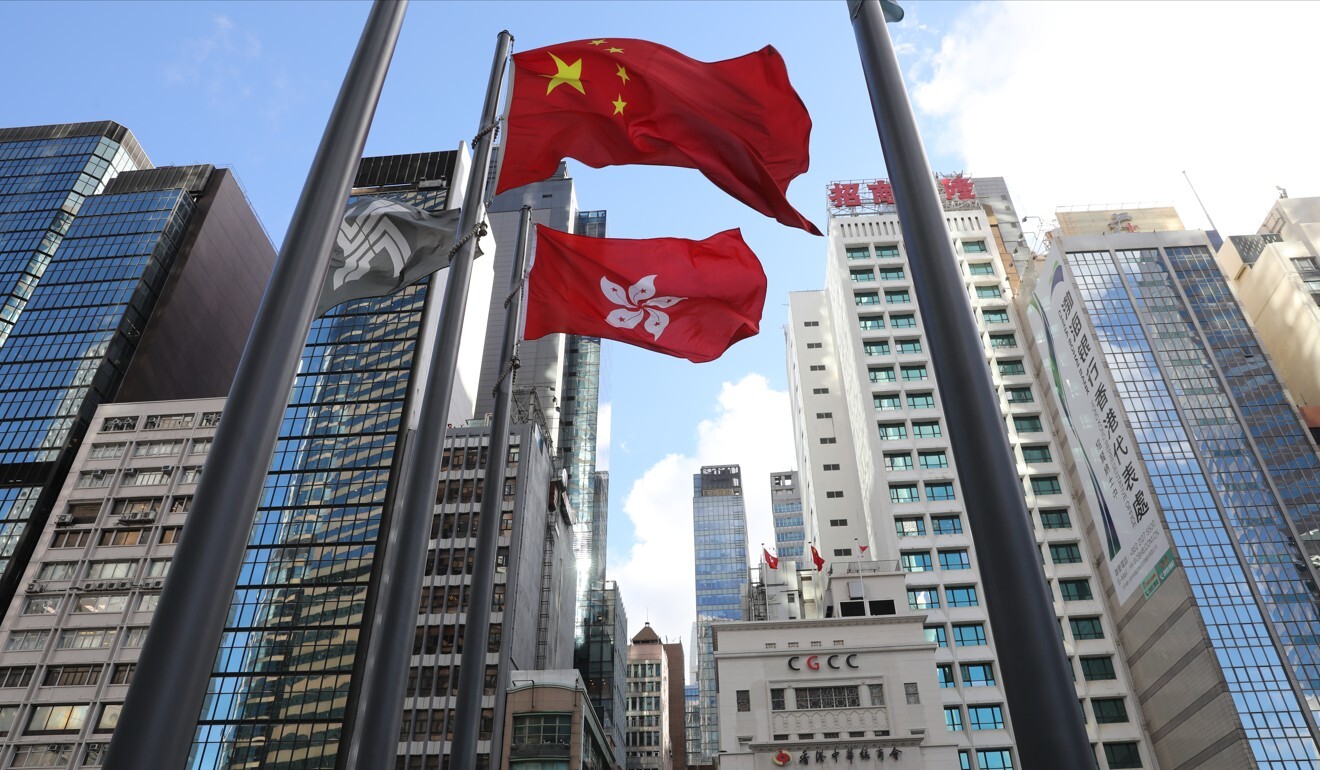
Hours before the law was passed, US Secretary of State Mike Pompeo announced that the United States would stop exporting defence equipment to Hong Kong, as well as restrict the city’s import of dual-use technologies.
Pompeo argued that Beijing’s implementation of the national security law made it impossible for Washington to “distinguish between the export of controlled items to Hong Kong or to mainland China”.
Earlier this week, Beijing had already announced retaliatory visa restrictions on US officials who had “behaved extremely badly” over Hong Kong, as Beijing and Washington escalated their diplomatic row over the year-long Hong Kong protests and the national security law.
Before Beijing officially confirmed that the law was passed, British Foreign Secretary Dominic Raab said London was “deeply concerned” by reports about the passage of the legislation while the Japanese and South Korean governments also expressed concern.
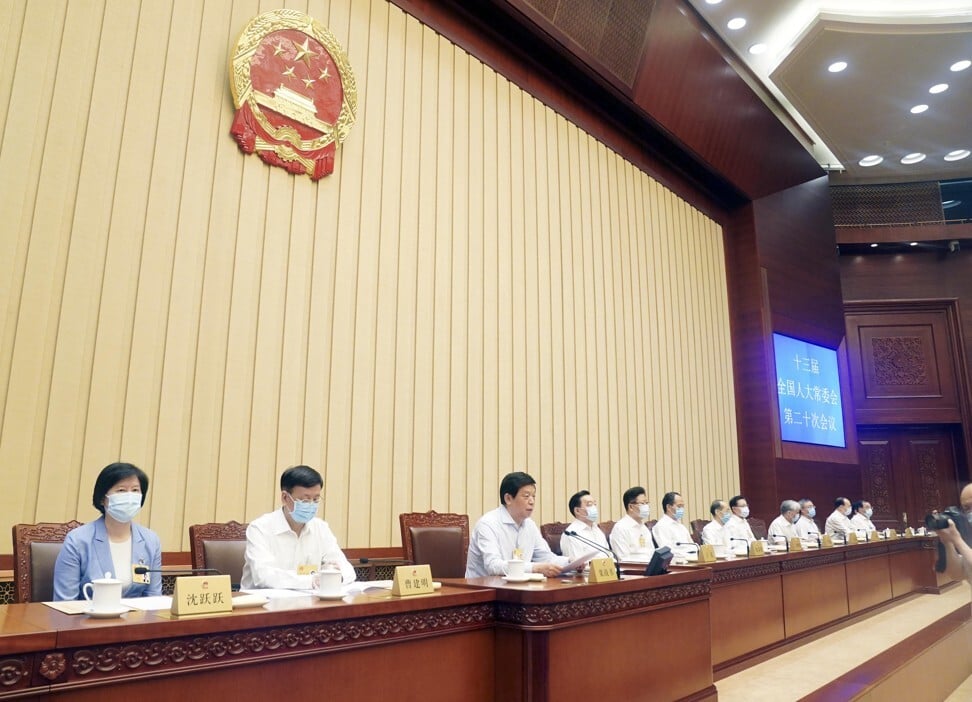
But in a video message broadcast on Tuesday at the opening of the UN Human Rights Council’s regular session, which lasts until July 17, Chief Executive Carrie Lam called on foreign countries to respect China’s decision.
“I urged the international community to respect our country’s right to safeguard national security, and Hong Kong people’s aspirations for stability and harmony,” Lam said in a recorded video released during the 44th session of the council.
In another statement announcing that the law would come into effect on Tuesday evening, Lam said: “The [Hong Kong] government will complete the necessary procedure for publication by gazette as soon as possible to enable the implementation of the national security law in Hong Kong in tandem.”
US tightens tech screw on China in move to strip Hong Kong special status
At her weekly press conference earlier, Lam also said any warnings from the US or other foreign governments to impose punitive sanctions “would not scare Hong Kong”.
“We are always ready if the central government retaliates, and we will fully cooperate if there are any sanctions taken by the central government,” she said.
Secretary for Justice Teresa Cheng Yeuk-wah also said in a statement that the justice department had set up a dedicated unit to handle prosecutions related to national security.
Zhang Xiaoming, deputy chief of the Hong Kong and Macau Affairs Office, is scheduled to co-host a press conference in Beijing on Wednesday to explain the new law, with Lam expected to do the same in the city, after attending a flag-raising ceremony and reception to celebrate the 23rd anniversary of Hong Kong’s return to Chinese rule.
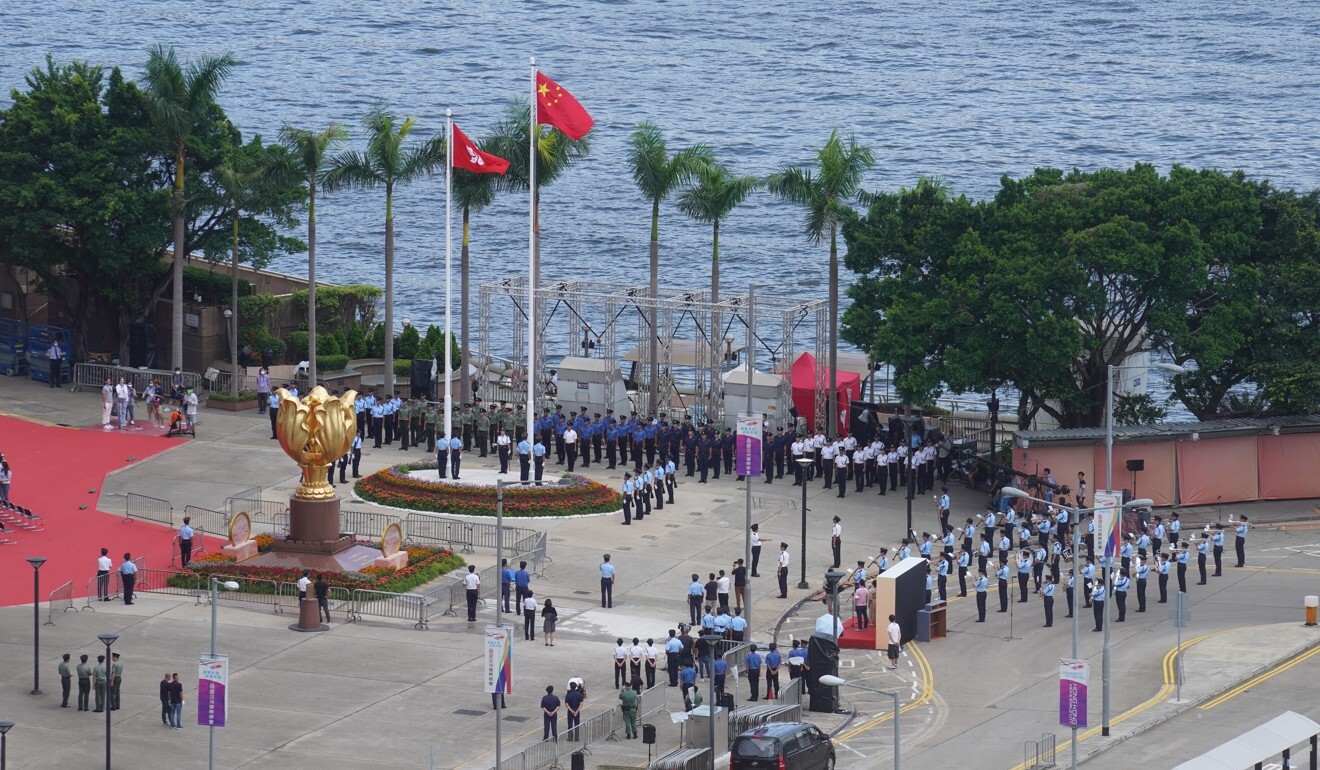
While the city’s pro-establishment legislators issued a joint statement to express full support for the law, opposition lawmakers warned it would spell the end of the city’s “high degree of autonomy”.
Democratic Party lawmaker James To Kun-sun said: “Under the national security law, ‘one country, two systems’ has ended after being implemented for 23 years … because it will allow mainland officers to enforce the law in Hong Kong – the city’s freedoms will be compromised.”
Leung said he had relayed the demand to the government, as he hoped that officials would explain details of the law to legislators soon.
Before the law was passed, only a handful of Hong Kong delegates to the national legislature saw a draft, causing widespread consternation and criticisms of the lack of transparency given its far-reaching consequences.
After the Basic Law Committee met on the same morning to provide feedback, the standing committee met again in the afternoon and endorsed unanimously the addition of the national security law in Annex III of the Basic Law.
After the meeting, CPPCC standing committee member Henry Tang Ying-yen said the pro-Beijing bloc in Hong Kong would firmly support the new law, which would help end violent protests that haunted the city since June last year.
“In the past year, Hong Kong faced many challenges, and our economy, social development and people’s livelihood were being hampered,” he said.
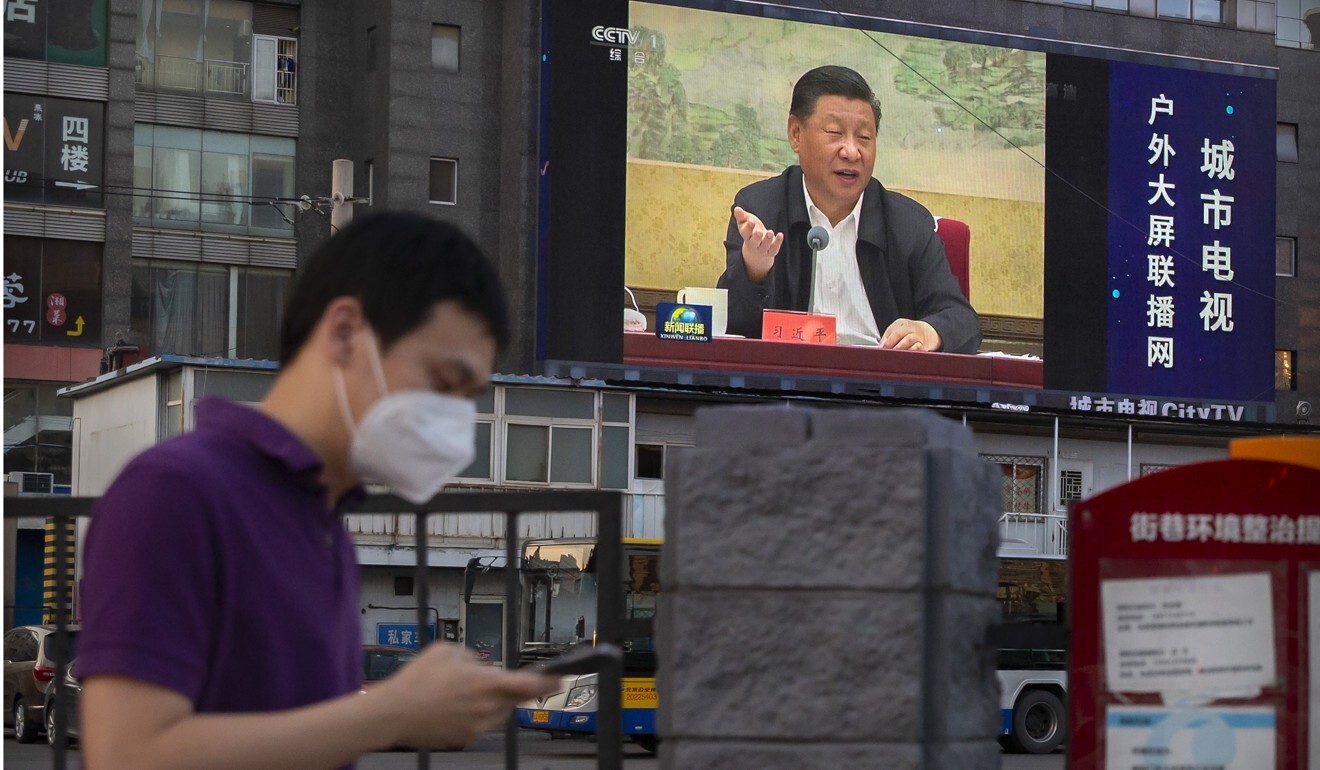
Announcing his decision to quit, Joshua Wong wrote on his Facebook page: “When the national security law is approaching with the People’s Liberation Army demonstrating a sniper ‘decapitation’, it is no longer nonsense to worry about life and safety in engaging democratic resistance in Hong Kong.”
While Amnesty International described the passage of the law as “the greatest threat to human rights in the city’s recent history”, Tam Yiu-chung, Hong Kong’s sole delegate to the NPC standing committee, countered that if the city became a base for collusion with foreign forces, the people’s interests and livelihoods would be undermined.
“People who have been causing trouble in the past should be careful from now on,” he warned.
Reporting by Jeffie Lam, Kimmy Chung, Tony Cheung, Lilian Cheng, Natalie Wong, Sarah Zheng, Chan Ho-him, Zoe Low and Gary Cheung

